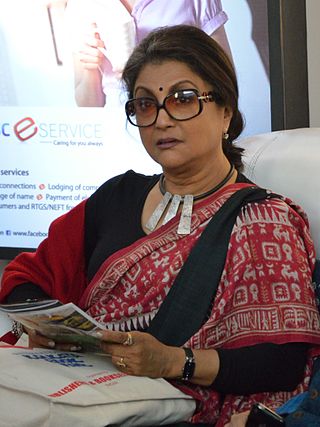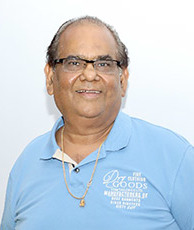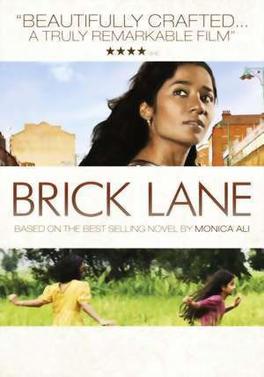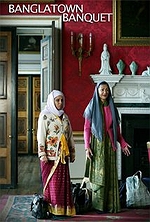
The Adelphi Theatre is a West End theatre, located on the Strand in the City of Westminster, central London. The present building is the fourth on the site. The theatre has specialised in comedy and musical theatre, and today it is a receiving house for a variety of productions, including many musicals. The theatre was Grade II listed for historical preservation on 1 December 1987.

Vidhu Vinod Chopra is an Indian film director, producer, screenwriter and editor. He is the recipient of several accolades, including four National Film Awards, ten Filmfare Awards and an Academy Award nomination. His well-known films as director are the crime drama Parinda (1989), the patriotic romantic drama 1942: A Love Story (1994), the action drama Mission Kashmir (2000) and the biographical drama 12th Fail (2023). He is also known for producing the Munna Bhai film series, 3 Idiots (2009), PK (2014), and Sanju (2018) under his banner Vinod Chopra Films.

Shyam Benegal is an Indian film director, screenwriter and documentary filmmaker. Often regarded as the pioneer of parallel cinema, he is widely considered as one of the greatest filmmakers post 1970s. He has received several accolades, including eighteen National Film Awards, a Filmfare Award and a Nandi Award. In 2005, he was honoured with the Dadasaheb Phalke Award, India's highest award in the field of cinema. In 1976, he was honoured by the Government of India with the Padma Shri, the fourth-highest civilian honour of the country, and in 1991, he was awarded Padma Bhushan, the third-highest civilian honour for his contributions in the field of arts.

Tabassum Fatima Hashmi, credited as Tabu, is an Indian actress who works primarily in Hindi films. Regarded as one of the most accomplished actresses in Hindi cinema, she has often played troubled women, from fictional to literary, in both mainstream and independent cinema. She is the recipient of numerous accolades, including two National Film Awards, seven Filmfare Awards, and two Filmfare Awards South. In 2011, she was awarded the Padma Shri, the fourth highest Indian civilian honour.
Anita Desai, born Anita Mazumdar, is an Indian novelist and the Emerita John E. Burchard Professor of Humanities at the Massachusetts Institute of Technology. As a writer she has been shortlisted for the Booker Prize three times. She received a Sahitya Akademi Award in 1978 for her novel Fire on the Mountain, from the Sahitya Akademi, India's National Academy of Letters. She won the British Guardian Prize for The Village by the Sea (1983). Her other works include The Peacock, Voices in the City, Fire on the Mountain and an anthology of short stories, Games at Twilight. She is on the advisory board of the Lalit Kala Akademi and a Fellow of the Royal Society of Literature, London.

Jaya Bachchan is an Indian actress and politician. She has served as a member of parliament in the Rajya Sabha from the Samajwadi Party. Known for her work in Hindi films, she is noted for reinforcing a natural style of acting in both mainstream and "middle-of-the-road" cinema. A recipient of several accolades, she has won a record nine Filmfare Awards and the Padma Shri, the fourth-highest civilian honour awarded by the Government of India.

Aparna Sen is an Indian film director, screenwriter and actress who is known for her work in Bengali cinema. She has received several accolades as an actress and filmmaker, including nine National Film Awards, five Filmfare Awards East and thirteen Bengal Film Journalists' Association Awards. For her contribution in the field of arts, the Government of India honoured her with Padma Shri, the country's fourth highest civilian award.

The Kapoor family is a prominent Indian show business family with at least 4 generations of the family over 95 years being active in the Hindi film industry. Numerous members of the family, both biological and those who have married into the family, have had prolific careers as actors, film directors and producers. "The Pioneer" founder of the dynasty was "The Patriarch", Prithviraj Kapoor, who was the first member of family to begin acting in movies with his 1929 debut film Be Dhari Talwar. He was a pioneer of Indian theatre and the founding member of Indian People's Theatre Association (IPTA). His son Raj Kapoor was the most influential actor and director in Hindi cinema. The genesis generation or the earliest linear generation of the Kapoor family tree to ever act in the films was Prithviraj Kapoor's father, Basheshwarnath Kapoor, who debuted as actor in 1951 film Awaara, which was produced, directed and starred in lead role by his grandson Raj Kapoor.
Silver Street was a radio soap opera broadcast on the BBC Asian Network from 24 May 2004 to 26 March 2010. It was the first soap to be aimed at the British South Asian community,

South Asian cinema refers to the cinema of Afghanistan, Bangladesh, Bhutan, India, Maldives, Nepal, Pakistan and Sri Lanka. The broader terms Asian cinema, Eastern cinema and Oriental cinema in common usage often encompass South Asia as well as East Asia and Southeast Asia.
Shobu Kapoor is a British actress.

Sonam Kapoor Ahuja is an Indian actress who works in Hindi films. She has received several awards, including a National Film Award and a Filmfare Award, and from 2012 to 2016, she appeared in Forbes India's Celebrity 100 list based on her income and popularity.
Tanika Gupta is a British playwright. Apart from her work for the theatre, she has also written scripts for television, film and radio plays.

The Boishakhi Mela is a Bengali celebration (mela) which takes place outside of Bangladesh. It is celebrated by the Bangladeshi diaspora in the United Kingdom, United States, Canada as well as many other countries with significant Bangladeshi populations.

Satish Chandra Kaushik was an Indian actor, director, producer, comedian, and screenwriter. He found his fame in Bollywood with Mr India starring Anil Kapoor, Sridevi and Amrish Puri, where he played the iconic character of a cook named Calendar. He was also an Assistant Director in the film.

British Bangladeshis are people of Bangladeshi origin who have attained citizenship in the United Kingdom, through immigration and historical naturalisation. The term can also refer to their descendants. Bengali Muslims have prominently been migrating to the UK since the 1940s. Migration reached its peak during the 1970s, with most originating from the Sylhet Division. The largest concentration live in east London boroughs, such as Tower Hamlets. This large diaspora in London leads people in Sylhet to refer to British Bangladeshis as Londoni.

Brick Lane is a 2007 British drama film directed by Sarah Gavron, at her directorial debut and adapted from the 2003 novel of the same name by the British writer Monica Ali. The screenplay was written by Laura Jones and Abi Morgan.

The Ferreira family are a fictional family from the BBC soap opera EastEnders, that appeared on screen between 2003 and 2005. Created by Tony Jordan and introduced by Louise Berridge as a new Asian family, producers hoped they would become central to the show. However, after Indian actor Dalip Tahil was forced to leave due to a controversy over his work permit, a major plot involving the family had to be scrapped and was replaced with a kidney transplant storyline that was branded "boring". It was later revealed that the dropped storyline involved Dan being murdered by his children and buried in a shallow grave. The characters were also called "unrealistic", "annoying", and "unlikeable" by many of the show's fans and critics. They were blamed for a decline in the show's viewing figures and were eventually axed by Kathleen Hutchison after bosses struggled to find storylines for the family. Jordan later admitted the family's members were "the least successful characters [he] created".

Suzana Ansar is an English singer, actress and television presenter of Bangladeshi descent.
Brick Lane is a 2006 British documentary directed and produced by Minoo Bhatia. The documentary is about the personal stories and journeys of people who have made the street Brick Lane their home, how these different groups have shaped the town and the changing cultural markers that define the area. It was broadcast by BBC Two on 25 March 2006.















